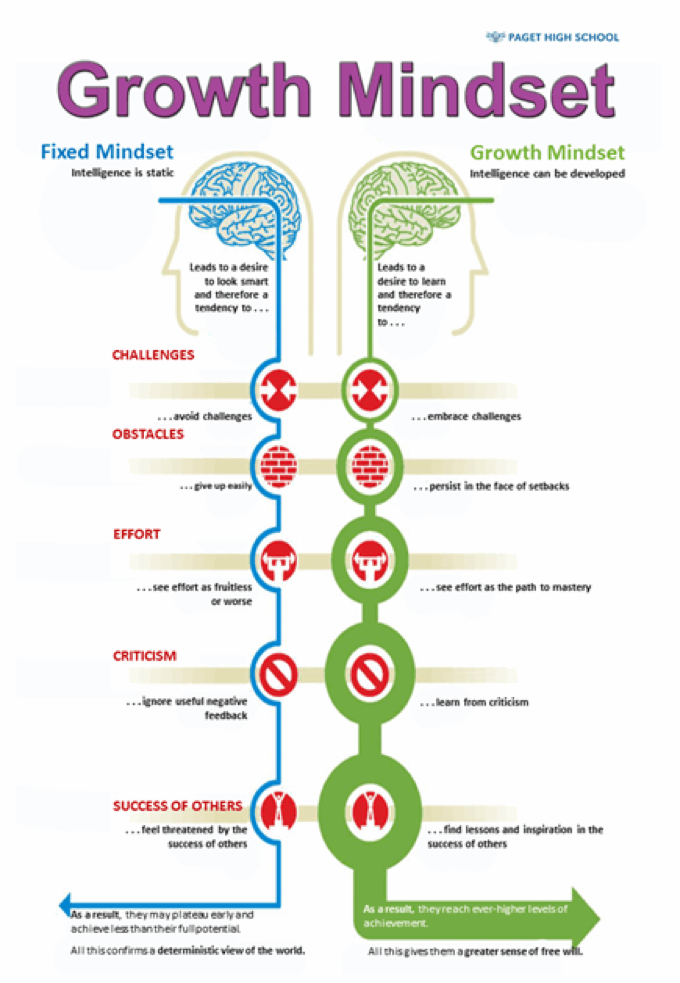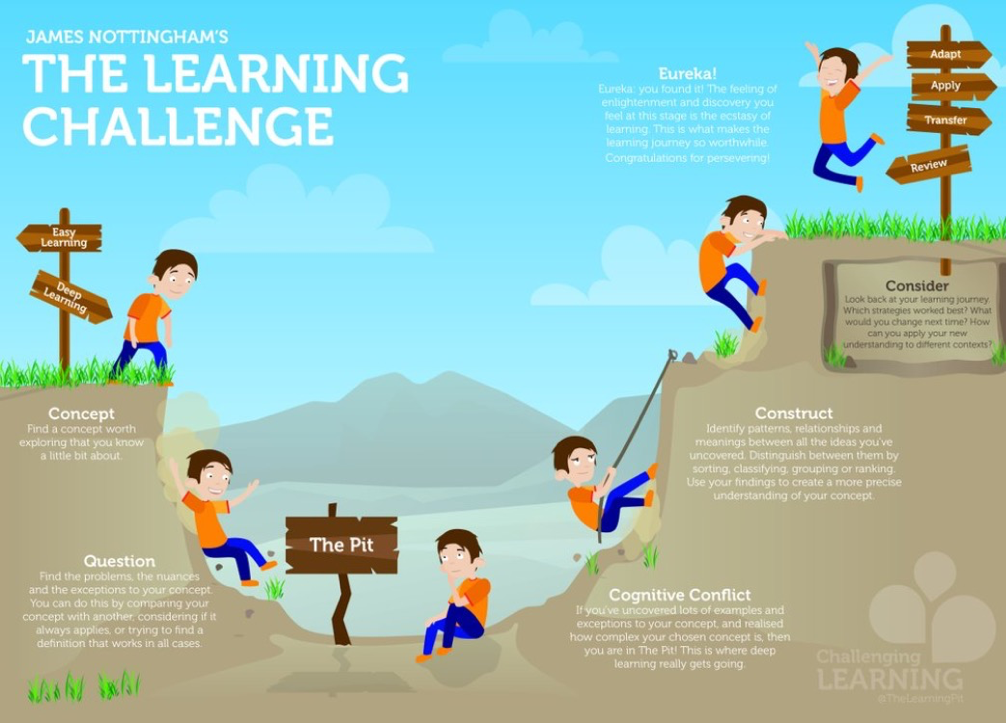We are a school that has promoted pupils developing a ‘growth mindset’ for many years. We have high ambitions for all children who join us as we believe that ability is not fixed and that with hard work, and a positive attitude towards learning, good progress will be made. This approach is based on the theories of Dr Carol Dweck , author of ‘Mindset – The Psychology of Success’ 2006. We believe that with hard work and effort anything is possible.
“With a growth mindset students understand their talents and abilities can be developed through effort, good teaching and persistence.” C. Dweck
At the leys we want our students to value effort, embrace challenge, respond to feedback and view their mistakes as the first step in learning. We want them to have high aspirations for themselves and believe that their goals are attainable. We believe that this mindset will help students to achieve not only at the Leys but also in their future lives.
If you want to find out more...
Online: https://www.mindsetonline.com
Books:
• Summary of Mindset: by Carol Dweck 2017
• Mindset – Changing the way you think to Fulfil you Potential 2012 by Carol Dweck

The Learning Pit
In order to accelerate learning we teach our pupils how to respond to learning that is challenging. One approach we use is the ‘learning pit’ devised by James Nottingham to help pupils understand the process of learning. Using this approach we encourage pupils to be resilient in their learning, and use a range of choices to help them when they don’t understand new learning skills and concepts.
“It’s about this idea of getting students to question, to challenge and wonder together. I want learning experiences to create that ‘cognitive wobble’, that sense of; ‘intellectual dilemma’ so that the students think more. The metaphor I use is a ‘learning pit.” James Nottingham
The stages of learning are the following:
Stage 1 Concept - The Learning Challenge begins with a concept (learning objective). The concept can come from the media, conversation, observations or the curriculum.
Stage 2 Conflict - The key to the Learning Challenge is to get students "into the pit” by creating cognitive conflict in their minds. This deliberate creation of a dilemma is what makes the Learning Challenge such a good model for challenge and inquiry. It is also the frequent experience of cognitive conflict that helps to build a Growth Mindset (Dweck, 2006).
Stage 3 Construct - After a while of being "in the pit,” some students begin to construct meaning for themselves. They do this by identifying relationships, explaining causes and integrating ideas into a new structure. As they do this, they experience a sense of "eureka” in which they have a new sense of clarity.
Stage 4 Consider - Once “out of the pit,” students should be encouraged to reflect on the stages of thinking they’ve just been through – from a single, simplistic idea (stage 1) to the identification of lots of, sometimes conflicting, ideas (stage 2) right through to a new understanding of more complex and inter-related ideas (stage 3). They should then look for ways to relate and apply their new understanding to different contexts.
There are six phases which begin in Nursery with the aim of reaching phase 6 by the end of year 2.
Extra support is given where necessary and continued as required in Year 3, although phonics continues to be revisited throughout Key Stage 2.
Here are some websites that will allow your child to practise the sounds that they are learning in their class.
www.letters-and-sounds.com
www.oxfordowl.co.uk
www.phonicsplay.co.uk
www.literacytrust.org.uk/early_years
www.ican.org.uk
If you want to find out more...
Online: www.jamesnottingham.co.uk;%20https://vimeo.com/128462566
Books:
-
Challenging Early Learning By James Nottingham and Jill Nottingham (2017)
-
Challenging Learning Through Feedback By James Nottingham and Jill Nottingham (2017)
-
The Learning Challenge By James Nottingham (2017)
-
Challenging Learning Through Dialogue By James Nottingham, Jill Nottingham and Martin Renton (2017)
-
Encouraging Learning By James Nottingham (2012)
